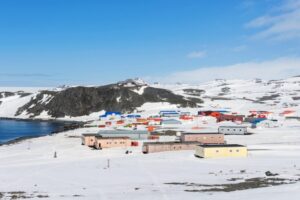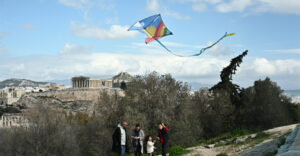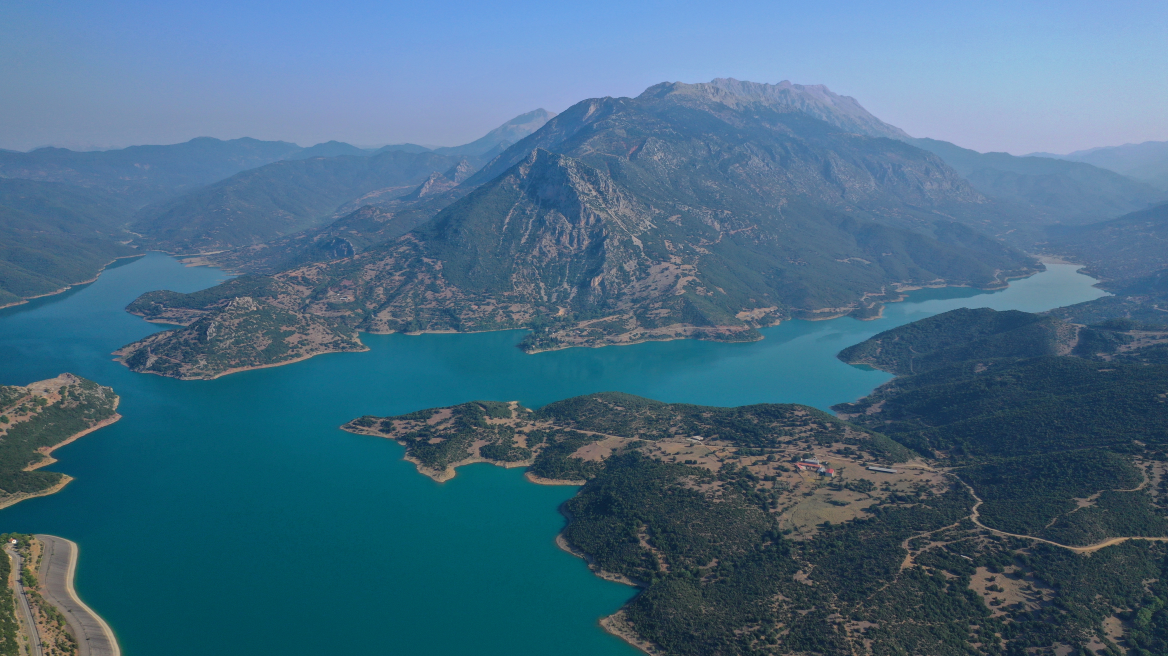Greece will send scientists to Antarctica for the first time, who will participate in the next Bulgarian expedition and will travel on the research vessel “St. Cyril and Methodius”, said in an interview with BTA the president of the non-governmental organization Hellenic Polar Zones Society, Simeon Constantinidis, Rear Admiral (ret.) of the Navy with experience in oceanography and meteorology.
Simon Constantinidis, is a naval officer with experience in oceanography and meteorology and meteo-scientific research.
The president of the NGO participated in the International Polar Conference on cooperation between the Balkan countries in the polar regions within the framework of the European EUPolarNet-2 and POLARIN projects, held in Anchialos (Acheloi, in Bulgarian), a town in the Black Sea province of Burgas, last weekend.
“This is a big step for us towards the South Pole, because it is the first time that Greece will send its own scientists. I would like to take this opportunity to thank Professor Christo Pibirev for offering us this opportunity and opening the doors of the Bulgarian base in Antarctica for us,” Constantinidis said. He added that the organization’s plans also include the construction of a weather station on the frozen continent, which, however, will probably take place next year.
One of the scientists who will travel to Antarctica this year on the Bulgarian ship is a professor at the University of Athens and is involved in astrophysics. He will make astronomical observations and measurements, Constantinidis explained. On the Greek side, the second scientific participant will be a professor at the Technical University of Crete, who will conduct psychological tests for people living in isolated places to check if they suffer from depression. Another experiment will be using videos created specifically to help people in isolated environments feel better. During her stay, the researcher will also use a technique to measure the magnetism that people emit while under different emotions.
Konstantinidis added that during the conference in Acheloi, she learned how much Bulgaria has achieved and that it is many steps ahead in Antarctic science, BTA reported. “We would like to follow Bulgaria’s steps and learn from its experience,” the president of the Hellenic Polar Zones Society said.
He added that he aspires to visit the frozen continent in the future, but for him now it is more important to coordinate the visit of Greek scientists there. “When they return, we will learn from their experience and we will be able to organize more expeditions. We hope to be able to develop this cooperation between the Balkan countries and Europe and to be able to send scientists from Greece every year. In this way we will be able to acquire expertise and in the future we will be able to build our own base or to cooperate with other countries like Bulgaria and share the scientific base, instruments, equipment. We will find a way, but the good thing is that we are neighbours, we are close and we can keep in touch more easily.
The two-day conference in Acheloi, apart from members of the Bulgarian Antarctic Institute, was also attended by representatives of the German Alfred Wegener Institute, the Spanish Polar Commission, the Polish Polar Research Center, as well as representatives of Balkan countries such as Turkey, Romania, Greece and Cyprus. Part of the program was the presentation of the English version of the May issue of the LIK magazine, dedicated to Bulgarian scientific achievements in Antarctica. BTA intends to publish the issue also in Spanish.
Ask me anything
Explore related questions





